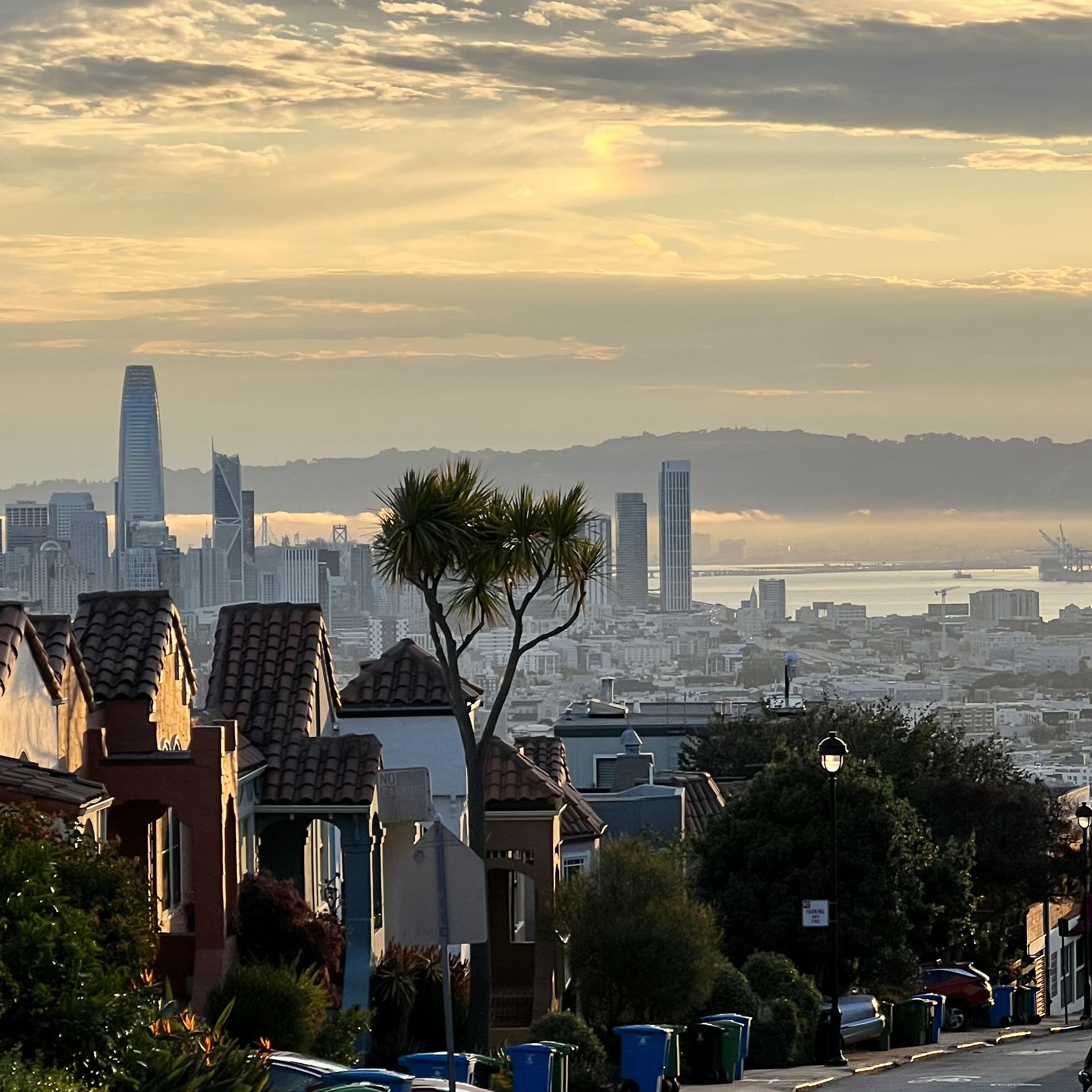
Forest Knolls brings to mind a few things: eucalyptus trees on Mount Sutro, houses built in the 1960s, and fog. This is a strictly residential neighborhood, close to the Inner Sunset but quite separated from it by a steep hill. Quiet streets, hiking paths on Mount Sutro, and houses on hillside stilts set Forest Knolls apart.
Forest Knolls is immediately across the street from the Midtown Terrace neighborhood, but was developed several decades later and because of that it has a very different feel. Most of the homes in Forest Knolls were constructed in the 1960s and 1970s, although some lots remained vacant until later than that. There is a proposed condominium development on the north side of the neighborhood, but that project has been stalled for years. It is bounded along the southeast side by Clarendon Ave., while Laguna Honda is the western boundary, and the UCSF campus and open space areas act as the northern boundary of the neighborhood.
Neighborhood Vibe
There is no commercial district within the neighborhood, and getting around is easiest with a car. Almost all homes have a garage, and most homes have two car garages, but if driving isn’t your cup of tea (or coffee), then you probably won’t feel very happy living in Forest Knolls.
Popular Home Styles
The neighborhood consists almost exclusively of single-family homes, although there are some smaller unit buildings, and condominiums or tenancies-in-common in smaller buildings that have been converted. There is a proposed condo project that may eventually be built, but the neighborhood overwhelmingly consists of single family homes that were built in or after the 1960s.
Getting Around
Car! There are some bus lines that serve the neighborhood, but as a general rule, and like many other District 4 (west of Twin Peaks) neighborhoods, Forest Knolls homes assume that you’ve already got a car.

With 20+ years in the industry and over $400M in sales, we live and breathe San Francisco real estate from Visitacion Valley to The Marina and from Victorians to modern condos. Always fascinated by the people, history, and evolution of our city, we can’t imagine working anywhere else.

We know how to prepare and position your home for top dollar when selling and how to negotiate your best price as a buyer regardless of market dynamics. We work with the right people at the right time, tapping our powerful network of lenders, contractors, artisans, and vendors.

We are counselors and advisers, not salespeople. If you want a deal done, we’ll get a deal done. If you want to push pause, we’ll pause. Your search might last five years and 36 neighborhoods, or one hour and one address. Decades of experience prove we aren’t in this for the quick deal, but the lasting relationship. How about you?
We’re proud of the recognition we’ve earned for excellence in San Francisco real estate representation.
Our broker, Matt Fuller, is a recognized thought leader, white paper author, and media consultant for the real estate industry. He has served as the President of the San Francisco Association of Realtors and the Director of the California Association of Realtors.
We are members of the Top Agent Network, San Francisco’s premier community for the top ten percent of local real estate agents.
We’ve received numerous industry certifications including Certified International Property Specialist (CIPS), Graduate of REALTOR Institute (GRI), and National Association of REALTOR (NAR) Fair Housing.
San Francisco is a city of neighborhoods, each with nuances and a distinct character that make a difference when choosing a home.
We love, live, and work here, and are experts in the details of each of the ninety neighborhoods San Francisco has to offer.
Wherever you are in the home buying or selling journey, we have insights to share. Get in touch with us today.